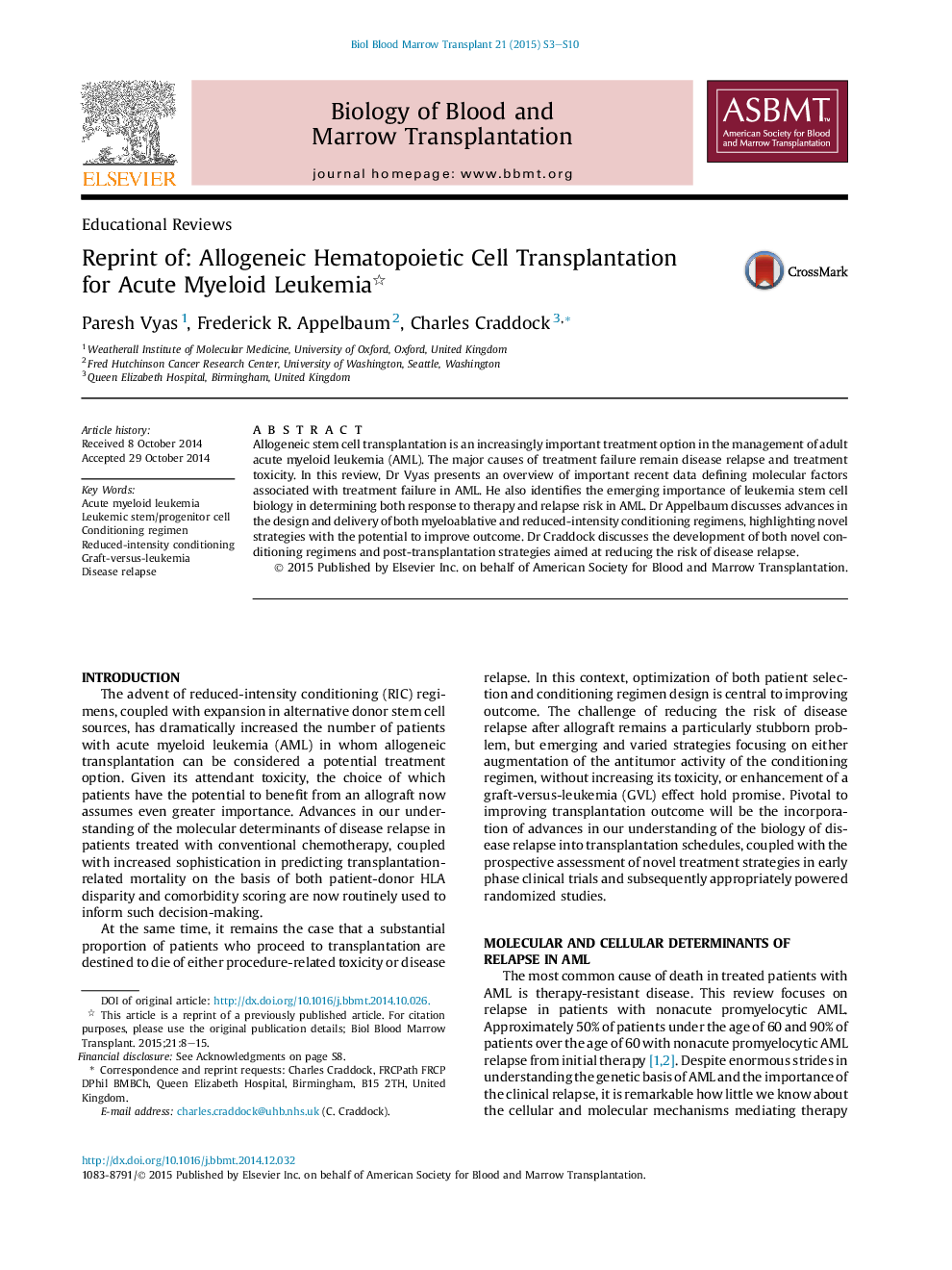| Article ID | Journal | Published Year | Pages | File Type |
|---|---|---|---|---|
| 2101576 | Biology of Blood and Marrow Transplantation | 2015 | 8 Pages |
•Disease relapse represents the major cause of treatment failure after allogeneic stem cell transplantation for acute myeloid leukemia•It is postulated that chemoresistant leukemic stem cells contribute to disease relapse after allogeneic stem cell transplantation•Confirmatory clinical studies of the impact of allografting on leukemic stem cells numbers are required•Relapse risk after allogeneic stem cell transplantation is inversely proportional to the intensity of the conditioning regimen•Patient comorbidity scoring is mandatory in patient selection for allogeneic stem cell transplantation•Prospective randomized trials of novel conditioning regimens are required•Combinations of fludarabine and busulfan or treosulfan are promising in allogeneic stem cell transplantation•Pharmacological manipulation of the graft-versus-leukemia effect has the potential to reduce relapse risk•A second allograft is potentially curative in patients who relapse late after allogeneic stem cell transplantation
Allogeneic stem cell transplantation is an increasingly important treatment option in the management of adult acute myeloid leukemia (AML). The major causes of treatment failure remain disease relapse and treatment toxicity. In this review, Dr Vyas presents an overview of important recent data defining molecular factors associated with treatment failure in AML. He also identifies the emerging importance of leukemia stem cell biology in determining both response to therapy and relapse risk in AML. Dr Appelbaum discusses advances in the design and delivery of both myeloablative and reduced-intensity conditioning regimens, highlighting novel strategies with the potential to improve outcome. Dr Craddock discusses the development of both novel conditioning regimens and post-transplantation strategies aimed at reducing the risk of disease relapse.
